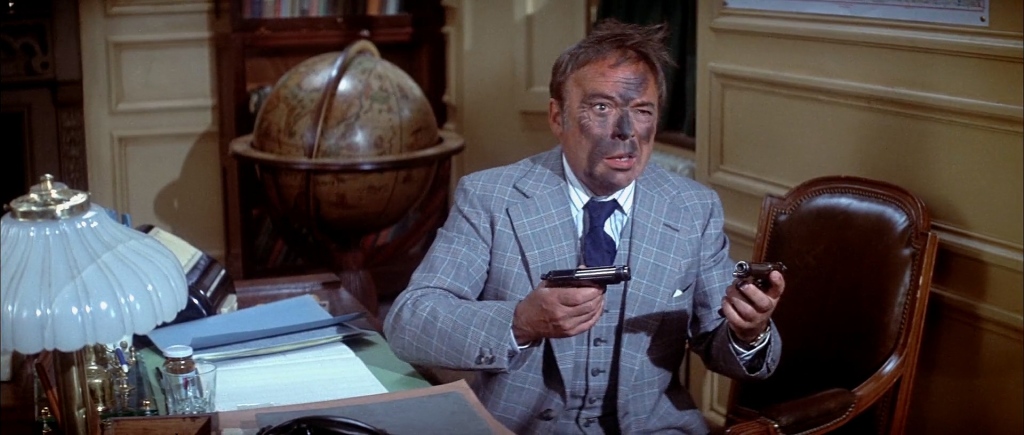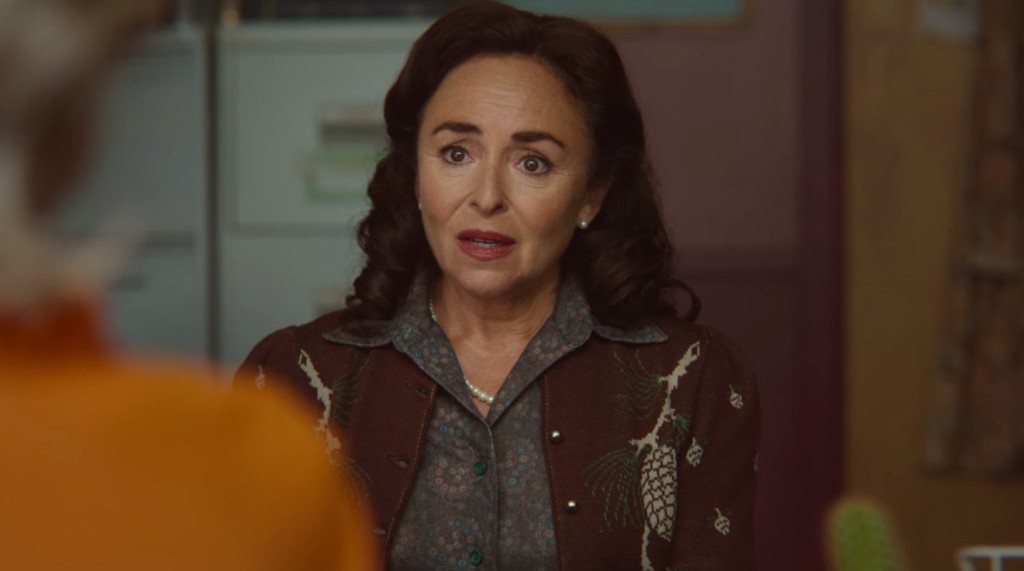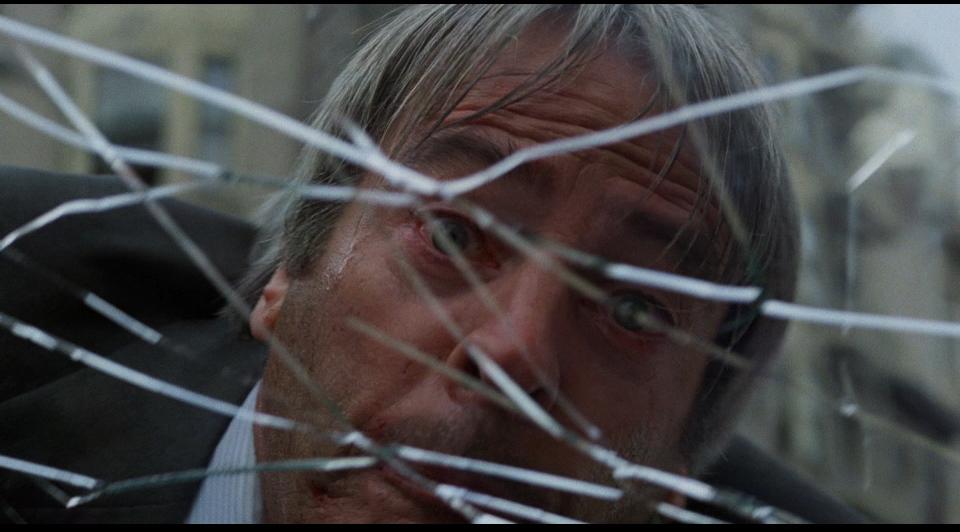Welcome to Six Damn Fine Degrees. These instalments will be inspired by the idea of six degrees of separation in the loosest sense. The only rule: it connects – in some way – to the previous instalment. So come join us on our weekly foray into interconnectedness.

Reading Matt’s latest piece on discovering film stars in their early performances before their eventual breakthrough, I was wondering how many actors actually never really got to that point yet still remain so easily recognisable. You know the ones I’m talking about: the instantly familiar faces that are hard to place but that you’ve seen repeatedly in films or on television; the staple supporting cast of many well-known directors from Alfred Hitchcock to Blake Edwards or Mel Brooks to the Quentin Tarantino; the returning characters in any franchise from Bond to Marvel and long-running series like The Avengers or Sex Education.
Arguably, the film and television industry would not survive without this cast of hundreds that populate all these productions over the years, these ‘work horses’ of filmmaking that are not only cheaper and more available than major stars but that form the backbone or the meat on the bone of so many. Many of them, of course, did have illustrous careers on stage prior to or besides their appearances on film, yet others might have been popular in their countries of origin much more than in English or American cinema. Finally, some might have had quite the career long before they became forever supporting faces (George Kennedy, anyone?).
Recently, for instance, I was struck by how scene-stealingly good Herbert Lom is alongside Peter Sellers’ overpowering slapstick in The Return of the Pink Panther and the rest of this questionably eclectic series. Whereas things absurdly get out of hand with Inspector Clouseau, Lom’s Chief Inspector Dreyfus is so convincingly dead set on stopping him and employs all the (failed) attempts he can muster, yet Lom balances the comical and the serious perfectly well. Did he make much a career outside this popular series and character? Does anyone specifically remember him in The Ladykillers, Dead Zone and several Hammer horror films (facing Christopher Lee’s Dracula in one, no less)? His biggest starring turn might have been indeed been the title role in Hammer’s 1962 Phantom of the Opera, but to casual viewers, he might still forever remain that funnily vengeful inspector.

On another recent first-time watch of the rather obscure espionage thriller The Tamarind Seed (1974), which puts Julie Andrews and Omar Sharif opposite each other as an unlikely starring couple, I was impressed by how many stellar yet rather unknown supporters make that film actually work. Besides Anthony Quayle (certainly known from his roles in Lawrence of Arabia and Guns of Navarone), there were strong turns from Oscar Homolka (the sinister cinema owner in Hitchock’s Sabotage), Dan O’Herlihy (as a Cambridge spy-like ambassador) and especially Sylvia Syms as his scheming wife. Her performance should have been a breakthrough and completely outdoes the film’s main star couple, yet despite a BAFTA nomination that year, the most recognisable role might have come as the Queen mother in Stephen Frears The Queen much later in her life.
A solid cast of high-quality supporting players has also formed the backbone of many a director’s career: what would Hitchcock’s Rear Window be without Thelma Ritter’s feisty housekeeper or Mildred Natwick’s endearing old lady in The Trouble With Harry? How funny would Mel Brooks’ comedies be without the deadpan delivery of Harvey Korman, Cloris Leachman and Madeleine Kahn? And how would James Bond fare without the sparkling Lois Maxwell as Moneypenny (great otherwise in the original Haunting), the sturdy Bernard Lee as M (recently spotted as a shopkeeper in The Spy Who Came in from the Cold) and the lovely Desmond Llewelyn as Q, all of which needed to look no further after being cast in these life-long supporting roles.
It is certainly too early to tell how many such supporting players might still get their starring moments in the sun but such flocks of actors will always be just as necessary to sustain present-day cinema as well. Recently when watching series like Sex Education and The White Lotus, I again picked out great potential players like Samantha Spiro or, obviously, Jennifer Coolidge, one grand as the liberated wife of the headmaster, the other one show-stealing and finally reaping the benefits after a life-long supporting career. Will they be greater stars of tomorrow or remain necessary backbones? Spotting Spiro as a TV presenter in One Life alongside Anthony Hopkins might be a first hint at this but we will only know in retrospect.

To me, the most memorable realisation of this came in the late 1990s, when I had the chance to meet Joe Dante and his cast of supporting players at the Locarno Film Festival during the retrospective of this director’s work: Dick Miller (such a familiar face of almost every Dante film), Barbara Steele (the ‘horror goddess’ of the 60s who also crowned Dante’s Piranhas) or Kevin McCarthy (star of the original Body Snatchers, but then an increasingly important second-tier actor) all were cases in point: You can’t quite place them but you immediately try to find out where else you might have seen them. Just think of that guy who comes running and screaming at cars in the Body Snatchers remake!
Thank God for sites like IMDB to immediately find out – and for these lesser-known supporting stars to get their moments in the sun!

2 thoughts on “Six Damn Fine Degrees #183: The Forever Supporting Ones”